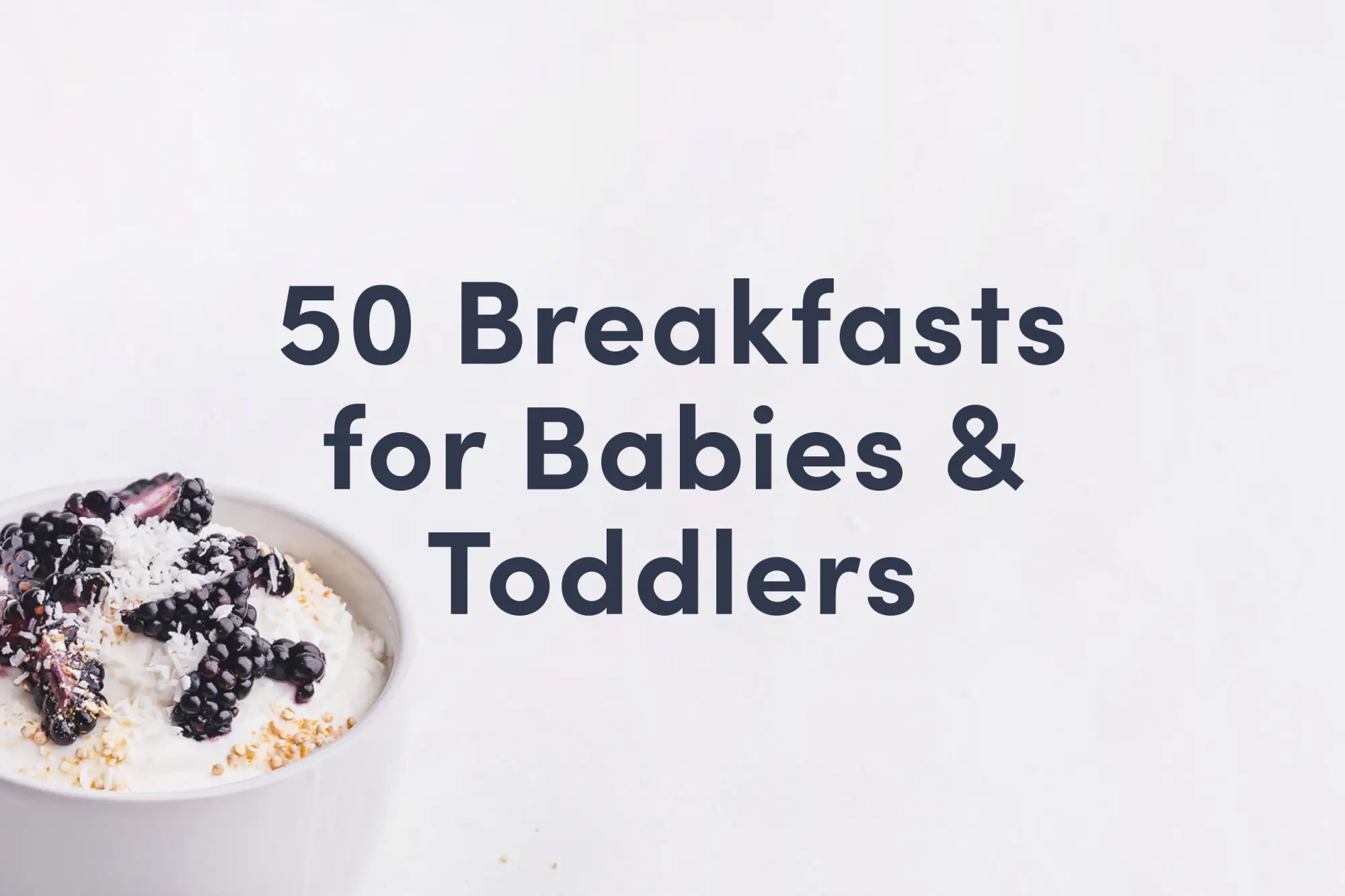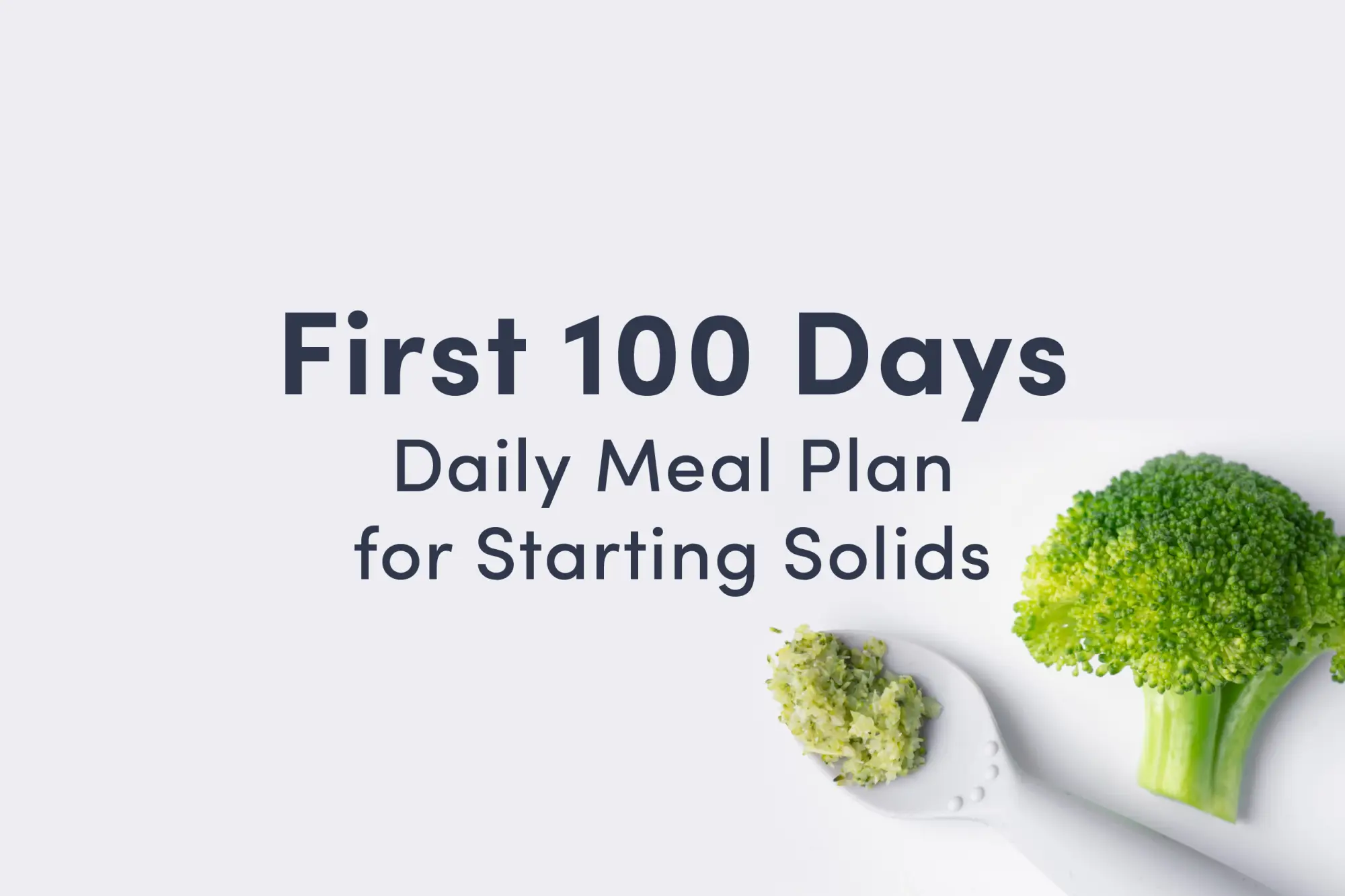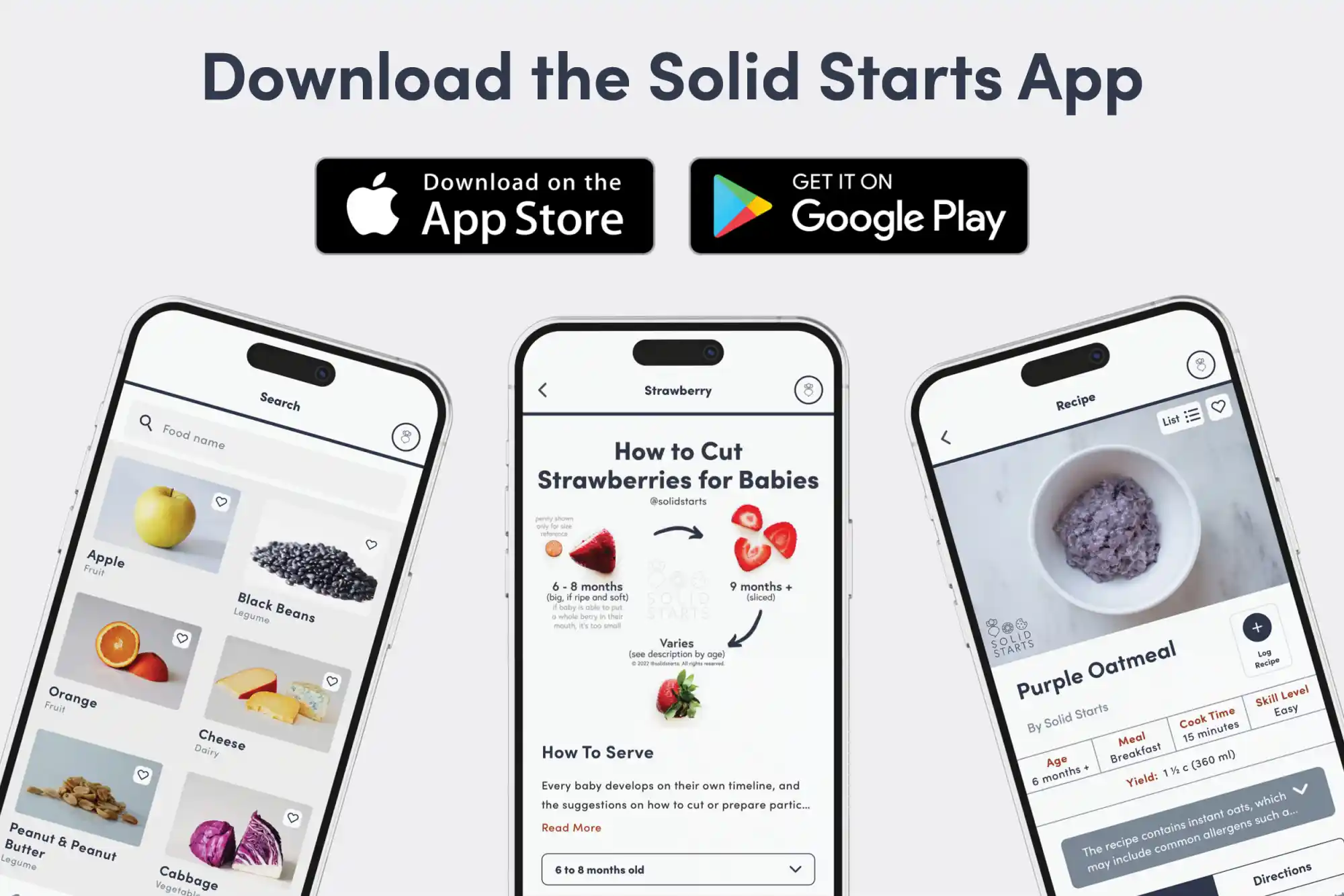Pear
Fruit
Age Suggestion
6 months
Iron-Rich
No
Common Allergen
No

Warning
Pears are a potential choking hazard, so keep reading to learn how to serve safely to babies.
When can babies have pears?
Pears may be introduced when baby is ready to start solids, which is generally around 6 months old, as long as the fruit is very soft and ripe or cooked until soft.
Pears originated in Asia thousands of years ago and spread from there to cool, temperate regions in Europe and beyond. There are thousands of pear varieties; some are typically eaten fresh out of hand, while others are only used in cooking or to make perry, the pear equivalent of apple cider.
Are pears healthy for babies?
Yes. Pears offer carbohydrates, fiber, and fluid, in addition to potassium, copper, and vitamins C and K. Together, these nutrients help provide energy to fuel baby’s movement and exploration, support the digestive system, and keep baby hydrated. They also help to support electrolyte balance, iron absorption, immune function, and blood clotting. Pears are among a number of fruits that are particularly helpful for babies struggling with constipation.
★ Tip: Can’t get fresh pears? Canned or frozen pears are a convenient and accessible alternative.
Are pears a common allergen?
No. Allergies to pears are uncommon, but have been reported. Individuals with Oral Allergy Syndrome (also known as pollen food allergy syndrome), and particularly those with sensitivities to birch tree pollen, may be sensitive to pears. Individuals sensitive to other foods of the Rosaceae family, such as apricots, almonds, and plums may also have a similar experience with pears. Oral Allergy Syndrome typically results in short-lived itching, tingling, or burning in the mouth and is unlikely to result in a dangerous reaction. Cooking, canning, or peeling pears can help minimize and even eliminate the reaction.
As you would when introducing any new food, start by offering a small quantity on its own for the first few servings. If there is no adverse reaction, gradually increase the quantity over future meals.
Are pears a choking hazard for babies?
Yes. Pears, especially when underripe, can be firm and slippery, qualities that increase the risk of choking. To reduce the risk, prepare and serve pears in an age-appropriate way as described in the How to Serve section. As always, make sure you create a safe eating environment and stay within an arm’s reach of baby during meals.
Learn the signs of choking and gagging and more about choking first aid in our free guides, Infant Rescue and Toddler Rescue.
Videos
Does pear need to be cooked for babies?
Yes, if the pear is firm. Simmer pear halves in water, steam, or bake until soft. If the pear is very soft and ripe (it should mash easily with slight pressure), you can skip cooking and offer baby large pieces that are easy to hold on to.
When can babies drink pear juice?
Wait to serve pear juice as a drink until after 12 months of age. Note that it can be beneficial to wait until a child is older to regularly share juice and other sugary drinks. Research suggests that regular intake of juice and other sweet drinks tends to increase the risk of dental cavities and take up space in the belly, which may decrease a child’s motivation to eat other foods at mealtime and may negatively affect the child’s growth. However, occasional, small servings of juice after one year of age generally isn’t a cause for concern. Learn more about serving juice to babies and toddlers.
How do you serve pears to babies?
Every baby develops on their own timeline, and the suggestions on how to cut or prepare particular foods are generalizations for a broad audience.
6 months old +:
Cook pear halves (core removed, skin on or off) until soft. Offer the pear half to baby in the air and see if they will grab it from you. For very ripe, soft pears, you can skip cooking and serve pear halves with the skin on or off and core removed, or you can serve large, thin slices. To check if the pear is soft enough, press it between your fingers to make sure it gives under slight pressure. Alternatively, grate or mash pear and stir the shreds into a soft, scoopable food like warm cereal or yogurt.
9 months old +:
Once baby has developed their pincer grasp, offer bite-sized pieces of soft, ripe pear, with skin on or off. Aim for small, flat pieces rather than cubes. You may also continue to offer soft, ripe pear cut into thin slices or half, with core removed. Or, continue offering cooked halves.
12 months old +:
For soft, ripe pears, pretty much anything goes at this age. Offer quartered pears with the core and seeds removed, bite-sized pieces, and when you feel the child is ready, the whole fruit with the skin. Expect the toddler to spit much of the skin out when eating—this is normal and will subside closer to 18 to 24 months when toddlers get the hang of grinding fruit and vegetable skins with their molars.
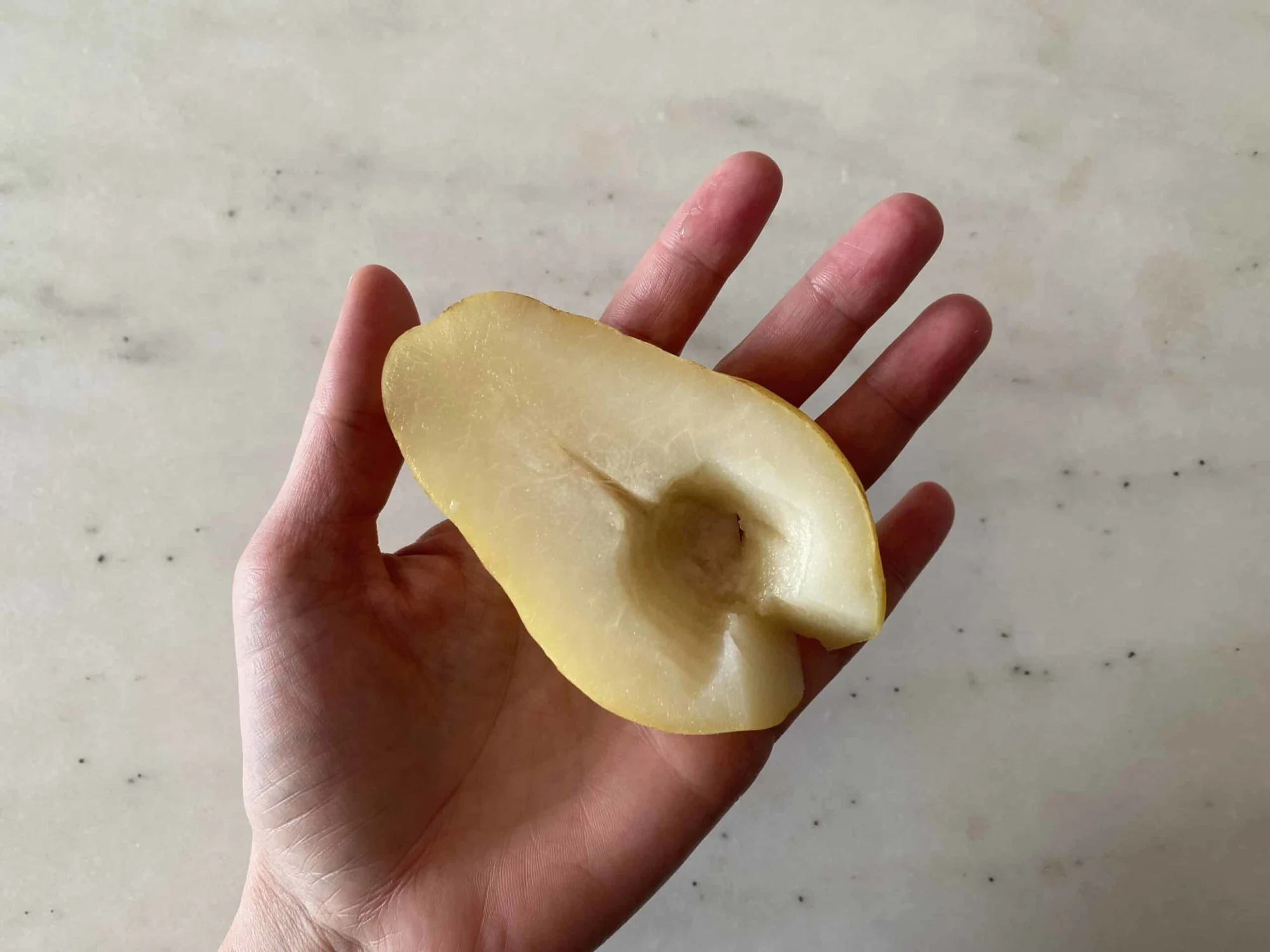
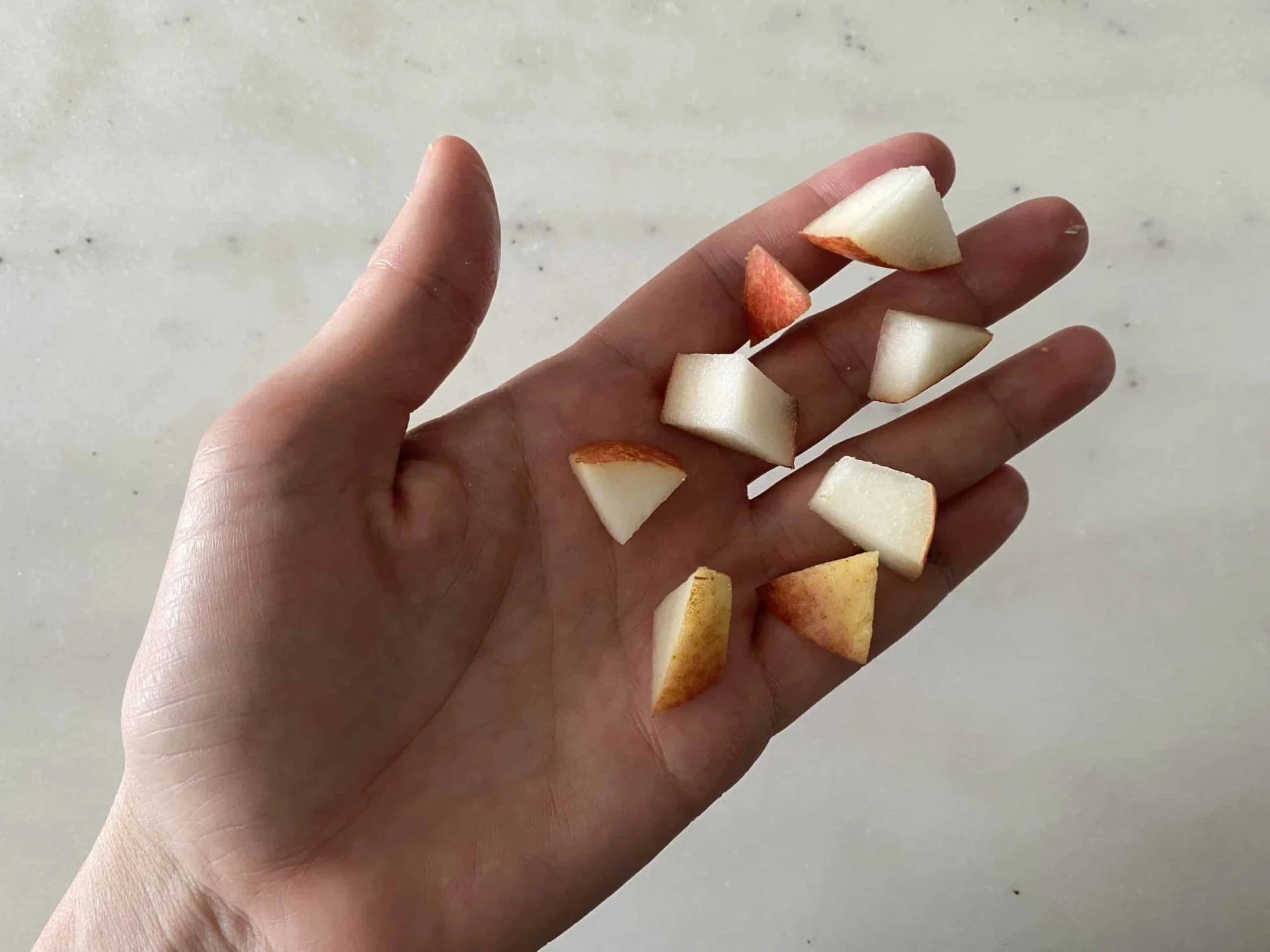
How to prepare a pear for cooking
How to decide whether to leave the skin on a cooked pear
Feeling overwhelmed with starting solids? Our First 100 Days Meal Plan will help.
Written by
Expert Tips Delivered to Your Inbox
Sign up for weekly tips, recipes and more!
The content offered on SolidStarts.com is for informational purposes only. Solidstarts is not engaged in rendering professional advice, whether medical or otherwise, to individual users or their children or families. No content on this site, regardless of date, should ever be used as a substitute for direct medical advice from your doctor or your medical or health professional, nutritionist, or expert in pediatric feeding and eating. By accessing the content on SolidStarts.com, you acknowledge and agree that you are accepting the responsibility for your child’s health and well-being. In return for providing you with an array of content “baby-led weaning” information, you waive any claims that you or your child may have as a result of utilizing the content on SolidStarts.com.

